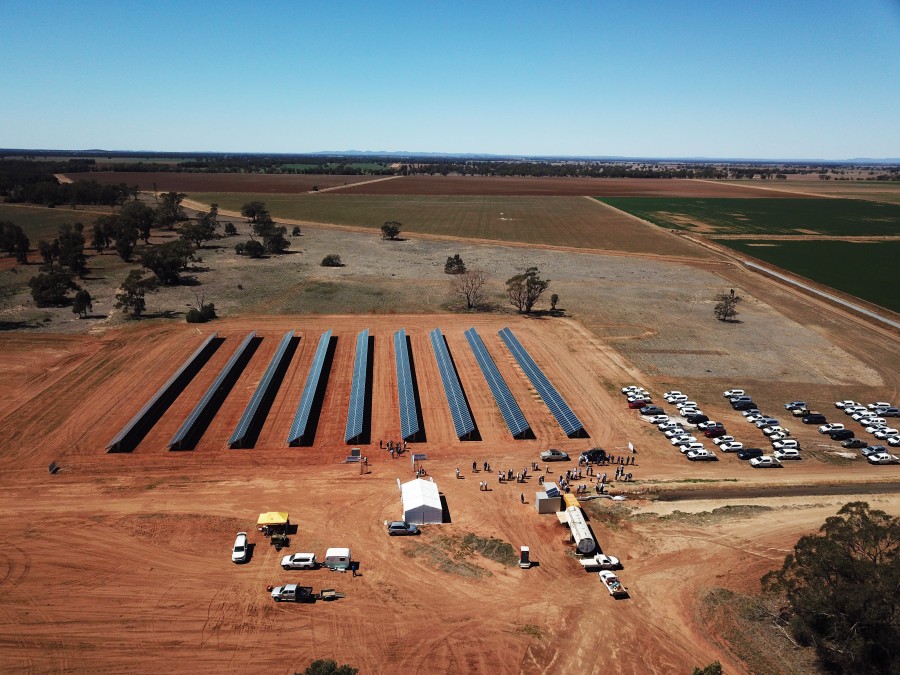CSIRO and ReAqua join forces to lead irrigation into the future
Large scale solar irrigation is an emerging technology with real and exciting potential for agriculture and the environment.
ReAqua seeks to continually innovate and optimise its solar pumping products. By doing this, it makes the business case for solar pumping stronger and much more attractive for irrigators.
One limitation of large scale solar pumping is the ‘start stop’ effect of intermittent cloud cover causing shading of the solar array. This either stops the pump, or in a hybrid system with diesel generation, will call for the generator to start and offset the lost solar production. Frequent start/stop events can increase generator maintenance needs and pumping equipment, reduce water volume delivered and consume excess fuel. Solar forecasts can help by predicting power loss events caused by clouds shading the solar array, and start the diesel generation pre-emptively.
The collaboration
Over the last 12 months, the Commonwealth Scientific and Industrial Research Organisation (CSIRO) and ReAqua have been discussing how the integration of solar forecasting technology can help make our systems smarter and reduce diesel consumption in our large scale solar irrigation set ups. The research is supported by the Innovation Connections Programme as part of the Australian Governments’ Entrepreneurs’ Programme, in partnership with CSIRO. The research will be conducted at ReAqua’s trial site of the 500kW solar diesel hyrbid pump in Narromine.
Solar forecasting technology
CSIRO’s new solar forecasting product can provide detailed forecasts of short term cloud movement over a farmer’s solar array by processing a sequence of whole-sky images using cutting-edge computer vision and machine learning algorithms. This allows optimization of generator and solar power control systems to avoid the diesel generator starting un-necessarily, for example if the cloud cover is only a short event.
Expected outcomes
Previous trials conducted by CSIRO using data from the technology indicates that the use of solar forecasting could benefit large scale solar powered water pumping in the following ways:
- Reduce the run time of diesel generators and hence save fuel. Accurate solar forecasting improves the operation of the diesel generator, pump and PV field by predicting the extent and duration of a cloud event. This enables more informed operational decisions and avoids outages while diesel generators commence operation.
- Reduce wear and tear and hence maintenance costs on diesel generators. This is through the management and reduction of fast ramp rate events.
- Improved design of new solar diesel hybrid pumping systems. Accurate local data of cloud formation patterns is useful for the determination of future PV array size requirements.
The research trial is expected to commence in December 2018 and end mid 2019. If all goes well, the investment in solar forecasting technology will be integrated into all large scale solar pumping systems, helping to bring ‘smarts’ into the irrigation industry’s future.


